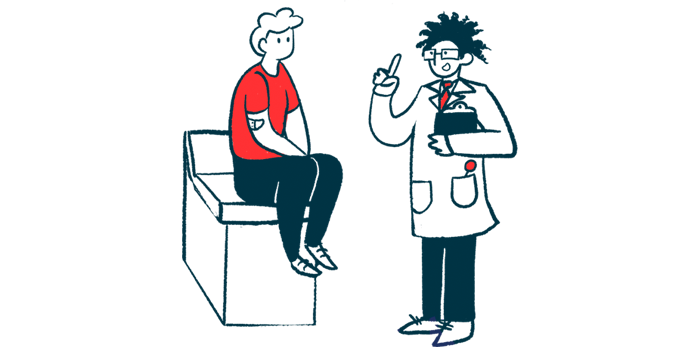Pandemic Placed Socioeconomic Hardships on CF Patients
Written by |

The COVID‐19 pandemic increased socioeconomic instability among people with cystic fibrosis (CF), mostly in terms of employment and ability to afford food, according to data from a single-center U.S. study.
Notably, patients who were employed prior to the pandemic appeared to be the most affected, reporting job loss and concerns about employment, insurance security, and access to medications.
The study allowed researchers to identify social hardships among CF patients followed at their center and subsequently implement interventions to minimize these COVID-19-associated changes.
The findings highlighted the impact of the pandemic on CF patients’ socioeconomic status and emphasized the importance of identifying and managing social hardships in this patient population, the researchers noted.
The study, “Impact of COVID-19 on social determinants of health for adults with cystic fibrosis,” was published in the journal Therapeutic Advances in Respiratory Disease.
Outcomes in CF patients are influenced by multiple factors, including social determinants of health (SDH), defined by the Centers for Disease Control and Prevention as “conditions in the places where people live, learn, work, and play that affect a wide range of health risks and outcomes.”
Increasing evidence shows that lower socioeconomic status is associated with more pulmonary exacerbations and need of antibiotics, greater disease severity and healthcare utilization, and decreased quality of life and survival in CF patients.
The COVID-19 pandemic disrupted the economy around the world, including in the U.S., promoting changes in socioeconomic status that could negatively affect health outcomes of people living with CF.
Moreover, patients with “known socioeconomic hardship, low income, and housing and food instability are even more vulnerable to economic turmoil,” the researchers wrote.
However, no study to date had investigated the impact of the COVID-19 pandemic on social determinants of health among CF patients.
To address this, a team of researchers at the University of Virginia Health System designed and distributed a COVID-19-specific SDH questionnaire in March and April 2020 to CF adult patients seen at their CF clinic in 2019 and 2020.
Their aim was not only to understand the new social hardships faced by these patients early in the pandemic, but also to facilitate access to assistance resources to minimize such changes. The study was supported by a Cystic Fibrosis Foundation (CFF) grant.
The SDH questionnaire was designed as an easy-to-answer “yes or no” questionnaire that included seven domains: housing, employment, health insurance, transportation, utilities, food security (ability to afford food), and access to CF-specific medications.
Survey results
The researchers contacted 132 patients for the survey, either through a patient portal, email, or phone. Five patients were interviewed during clinic visits.
A total of 76 patients (57.6%) responded to the questionnaire. Their mean age was 36.4 years, and most were women (57.9%), had completed college or high education (53.9%), were employed (52.6%), and had private health insurance (60.5%).
Results showed that 22 respondents (28.9%) reported at least one undesired change in SDH and 13.2% indicated several changes, mostly concerning employment, insurance, housing, and ability to afford food.
The SDH domains mostly affected by the pandemic were employment and food security, with more than a quarter (26.3%) of respondents saying they either had lost their job or were concerned about losing it, and 17.1% reporting concerns about being able to afford food at that time or in the future.
Fewer patients indicated concerns regarding insurance coverage (7.9%), medication access (6.6%), utilities (6.6%), housing (5.3%), and transportation (2.6%).
A greater proportion of patients with a stable job prior to the COVID-19 pandemic (37.5%) reported undesired change in at least one domain, compared with unemployed patients (25%) and those receiving disability benefits (21.1%).
Changes in SDH among responders employed before the pandemic mostly included job loss (25%), concerns about loss of employment (12.5%), insurance security (10%), and access to medications (10%). Job-related changes and concerns were independent of level of education.
Patients receiving disability benefits were more likely to report hardship related to ability to afford utilities (13.7%) and food (15.8%) when compared with employed respondents (5% and 7.5%, respectively) and unemployed respondents (11.1% each).
Notably, all respondents unemployed prior to the pandemic had health insurance and most had additional financial support from family. Most of their COVID-19-associated change and hardship was related to their partner or family social stability. No retired patients reported social hardship associated with the pandemic.
The CF team’s social worker was able to reach 21 (95.5%) of the 22 patients reporting at least one undesired SDH change — suggesting risk of socioeconomic hardship — to provide resources for minimizing changes in each domain.
These included information on available resources and laws to protect patients from evictions, regional shelter availability to homeless patients, nutrition resources, and CFF’s Compass assistance service.
Assistance with unemployment and insurance applications, as well as patient assistance forms for CF-specific medications also were provided. No patient lost access to CF-specific medications, the team noted.
“Understanding the disruptions in patients’ SDH during the pandemic allows for early interventions and mitigation to minimize disruptions in health care and ensure continuity in health insurance, access to health care, housing, and food stability,” the researchers wrote.
This COVID-19-specific SDH questionnaire “has the potential to impact health care beyond this clinic, as it can be utilized by other CF centers, clinics who deliver care for patients with other chronic conditions, and in the primary care setting,” they added.
Future studies “should include a focus on programs and public policies that may be beneficial in mitigating the effects of changes in SDH on vulnerable populations, including patients with chronic diseases such as CF,” the team wrote.
They noted, however, that the study also highlighted the inability to contact several CF patients who have not yet returned to the clinic since the onset of the pandemic and who may be under social hardship and unaware of existing resources.
“It is unclear how to reach these patients or how to identify if help is needed,” and “additional research in this area is greatly needed,” the researchers concluded.







